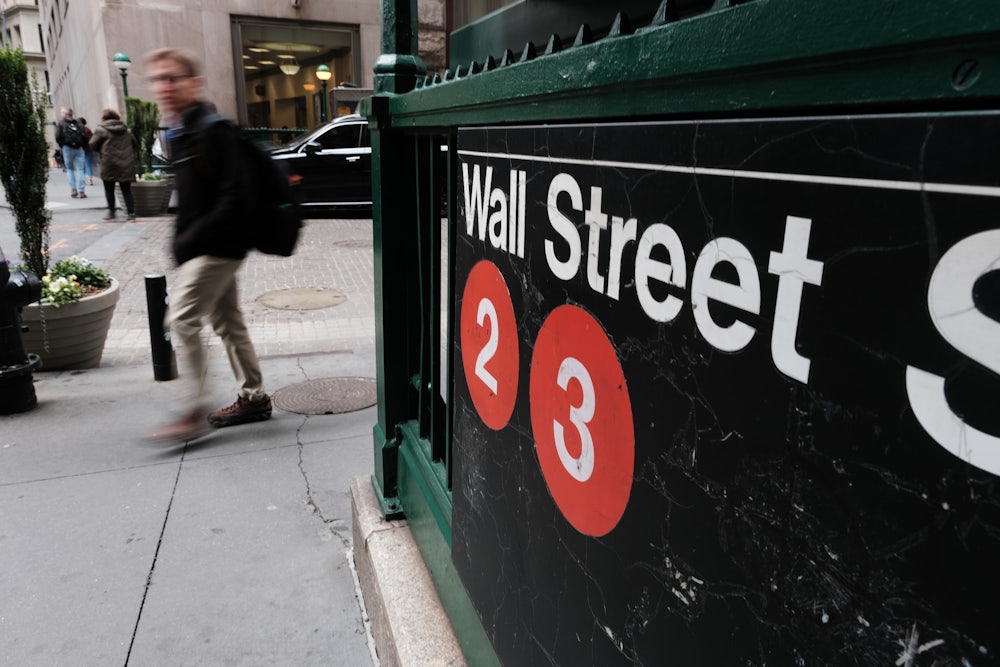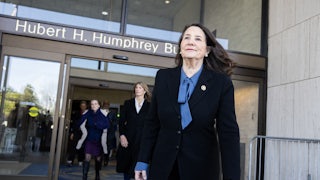When Cyclone Mocha swept through Bangladesh in May, some 250,000 people were left in need of food and shelter. Record-breaking flooding the year before affected over seven million, and heavy rains in 2020 submerged a quarter of the country and killed more than 100 people. Such storms stand to grow even stronger as temperatures rise. As the country figures out how to recover from and respond to future storms in the coming years, it’ll also need to return tens of billions of dollars to its creditors. Bangladesh’s external debt has more than tripled in the last decade, to $96.25 billion. The country is spending 2.5 times more than it spent just four years ago paying back lenders.
Amid the Covid-19 pandemic, rising commodity prices, and massive outflows of foreign capital, many low-income countries face a mounting debt crisis; since 2020, Sri Lanka, Ghana, Argentina, Lebanon, Zambia, and Ecuador have already defaulted. The climate crisis stands to make the financial situation of many of these countries more dire, threatening a vicious cycle: More disasters mean more damage to key sectors and more borrowing. Those loans keep getting more expensive.
Economists have warned for years that the world lacks an orderly system to deal with debt crises and curb unscrupulous investors that swoop in to bleed already struggling countries dry. Now low-income countries are increasingly having to pay out to recover from climate-fueled disasters and prepare for those to come—all as the world should be transitioning from fossil fuels at a rapid pace. Climate finance is still inordinately dispersed via loans that can add to those burdens.
An unlikely place could make serious, rapid inroads toward alleviating that crisis, and free up billions of dollars in climate finance in the process: Albany, New York, where the laws that govern more than half of all private debt globally are made.
As New York’s legislative session nears its end this weekend, advocates in labor unions, faith groups, and other nonprofits hope that the New York Taxpayer and Debt Crisis Protection Act will be among the bills to make it to Governor Kathy Hochul’s desk. The measure would level the playing field for public and private creditors, including those that try to extract as much money as possible from climate-vulnerable borrowers.
While the United States and other public creditors might accept making back less money to prevent more widespread suffering abroad, those funds can still be gobbled up by Wall Street. Because so many of those investors are based in New York City, an inordinate number of those legal battles happen in New York courts governed by New York laws. That the bill would take effect immediately means it could start to make a difference fast.
“Zambia is going through a debt restructuring now. If that legislation doesn’t pass, people are going to die of hunger,” said Eric LeCompte, executive director of Jubilee USA, a nonprofit that has been leading the charge for the bill as part of a broader coalition. “What we learned at the dawn of the pandemic is that the most important decisions on climate change aren’t made at the U.N. but in the IMF, World Bank, G20, and New York State legislature. It’s those entities which can free up resources for climate mitigation and adaption.”
The details of sovereign debt proceedings can seem impossibly dense, although the basic dynamics aren’t hard to grasp. When a country goes bankrupt, public and private creditors that have lent that country money come to the table in court to determine who gets paid what and when. Creditors, including the World Bank and Paris Club (wealthy countries like the U.S. and many EU member states), will often negotiate restructuring deals that involve accepting a hit to the returns they initially expected. While those deals can come with punishing terms for borrower countries, they’re ostensibly meant to allow countries to regain access to credit markets, continue funding basic public services, and get on a stronger economic footing.
Private creditors aren’t subject to such agreements, though. They can afford to hire white shoe law firms to string along governments for a seemingly unlimited amount of time, holding out for more. So-called vulture funds buy up distressed (read: cheap) debt from already imperiled economies, often for the purpose of engaging in lengthy and profitable litigation.
The return on investment can be huge. Take Elliott Management’s exploits in Argentina after the country defaulted in 2001. Over two rounds of negotiations, 93 percent of Argentina’s bondholders accepted a restructuring deal. Elliot and a small handful of other investors were not among them; a subsidiary of the firm mounted what would become a 15-year legal battle with the Argentine government from its home base in New York. In 2016, the fund finally reaped $2.4 billion—a total return of 1,180 percent. To get its pound of flesh, Elliot didn’t shy away from theatrics, either, going so far as to seize a naval training vessel in Ghana.
Preventing private creditors from abusing the system could free up desperately needed fiscal space for poorer countries to respond to and prepare for the climate crisis. In 2021, low-income countries spent an average of 27.5 percent of their budgets on debt service; Nigeria spends a remarkable 96 cents on every dollar paying back creditors, according to the World Bank. What was already a dire situation for low-income countries could tip into catastrophe over the coming years. A study published last April by Boston University’s Global Development Policy Center finds that private creditors hold the largest share of debt issued by the 55 countries most vulnerable to climate change. In total, these countries will face $435.8 billion in debt service payments through 2028, including $68.9 billion owed next year.
The bill in New York could make that picture a bit less grim. “It’s not a magic bullet,” says Kevin Gallagher, a co-author of the report and director of Boston University’s Global Development Policy Center, who argues that deeper overhauls of the global financial system are desperately needed. Still, he calls the bill “a great attempt to try to get the creditors to be responsible for this period of debt distress that they have a big hand in causing.”
“Many countries won’t default or ask for debt negotiations because they think that the private sector is going to drag it on for so long that the pain of restructuring will be bigger than the pain of making your society deal with self-inflicted austerity forever,” he added. “If this passes, we estimate that there are upwards of 70 countries that need debt relief which could benefit.”
Debt burdens, he explained, make it extraordinarily difficult to fund basic services, let alone to make forward-thinking investments in climate resilience or clean energy. By contrast, the rush to service debts—and in some cases the terms of restructuring agreements—incentivizes governments to tap into any fossil fuel reserves they might have and sell them for much-needed dollars. Amid a rolling economic crisis, including its ninth debt default in 2020 and more than 100 percent inflation, Argentina has doubled down on expanding oil and gas development in Patagonia.
Unsurprisingly, there are parties with deep pockets opposed to changing the status quo. The Act’s passage through the Senate Judiciary Committee in May provoked a full-fledged freak-out among distressed asset investors. “We cannot emphasize enough the dangers these bills pose to the very governments the bills seek to help,” the lobby group Creditors Roundtable wrote in a frantic letter to lawmakers late last month. “This will make emerging-market sovereign debt unmarketable in New York.”
Another lobby group sent a text to legislators promising economic ruin for the Empire State if the bill became law. They’ve argued that the measures will only serve to raise borrowing costs for already poor countries, cause investors to flee, and empower China.
Though messages have gotten less apoplectic, LeCompte told me, Wall Street is now making the case that—while something should eventually happen—passing the bill this session wouldn’t allow creditors enough time to haggle over it with lawmakers.
“We still have a path over the next two to three days,” LeCompte told me Thursday, noting intense pressure from lobbyists, “but it’s a narrow path.”










